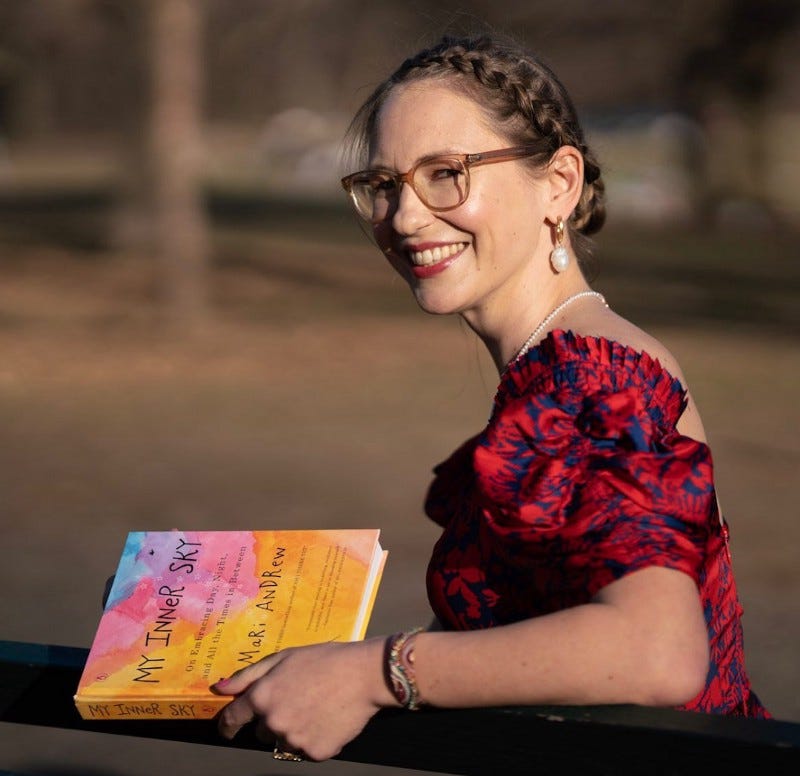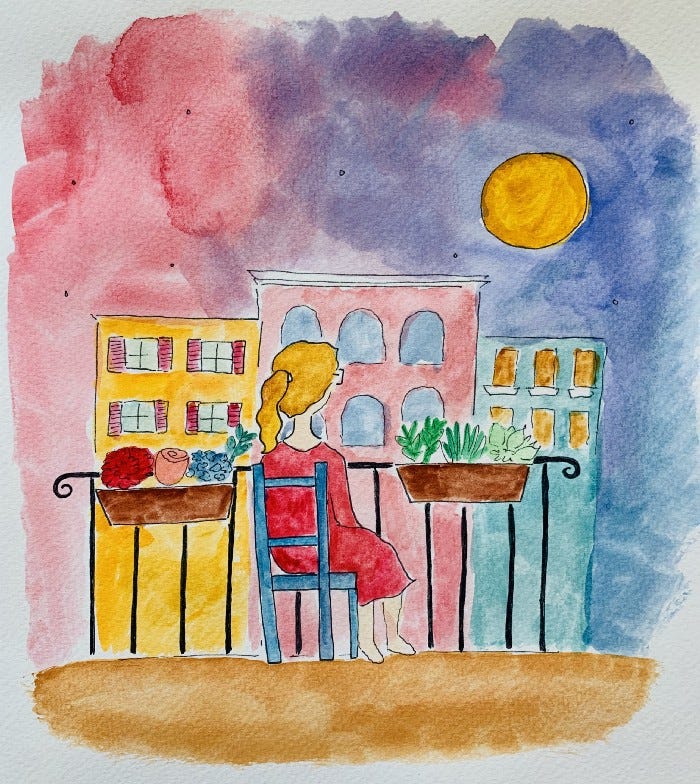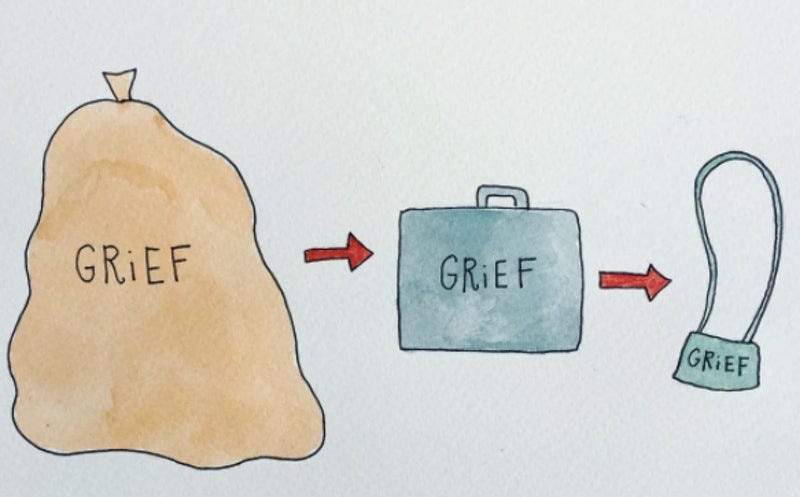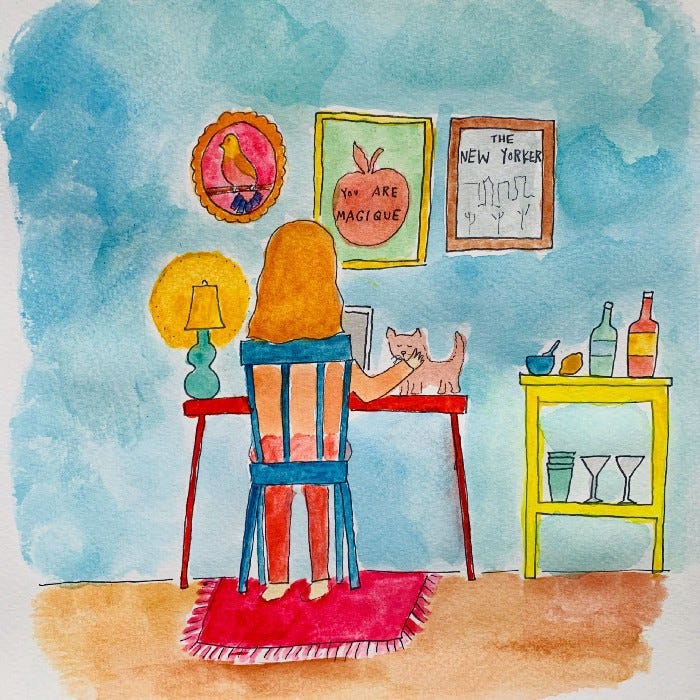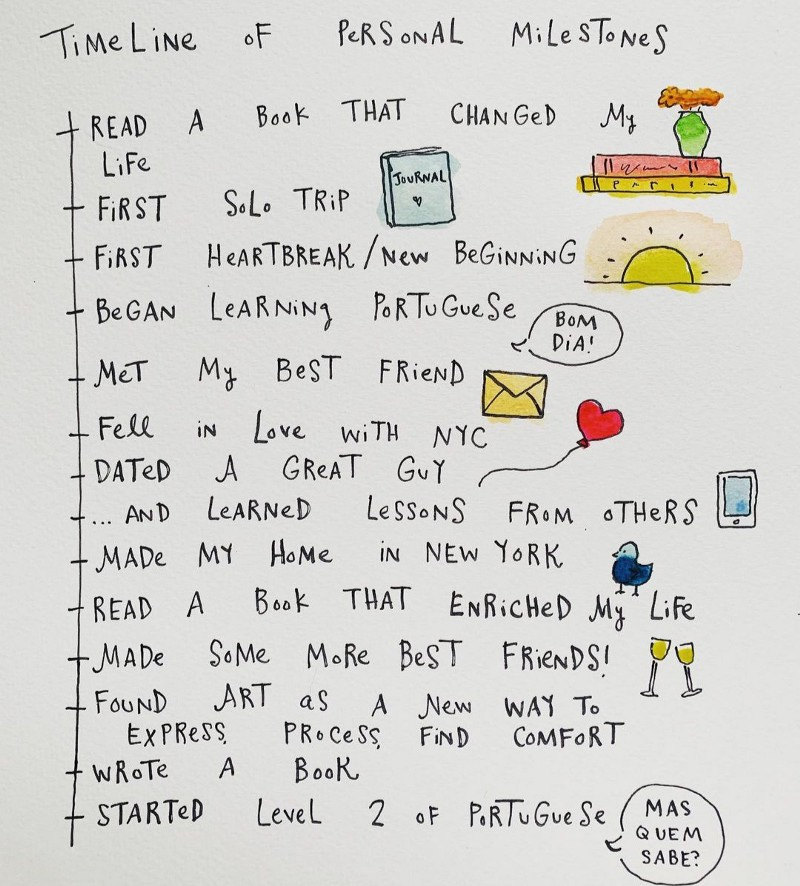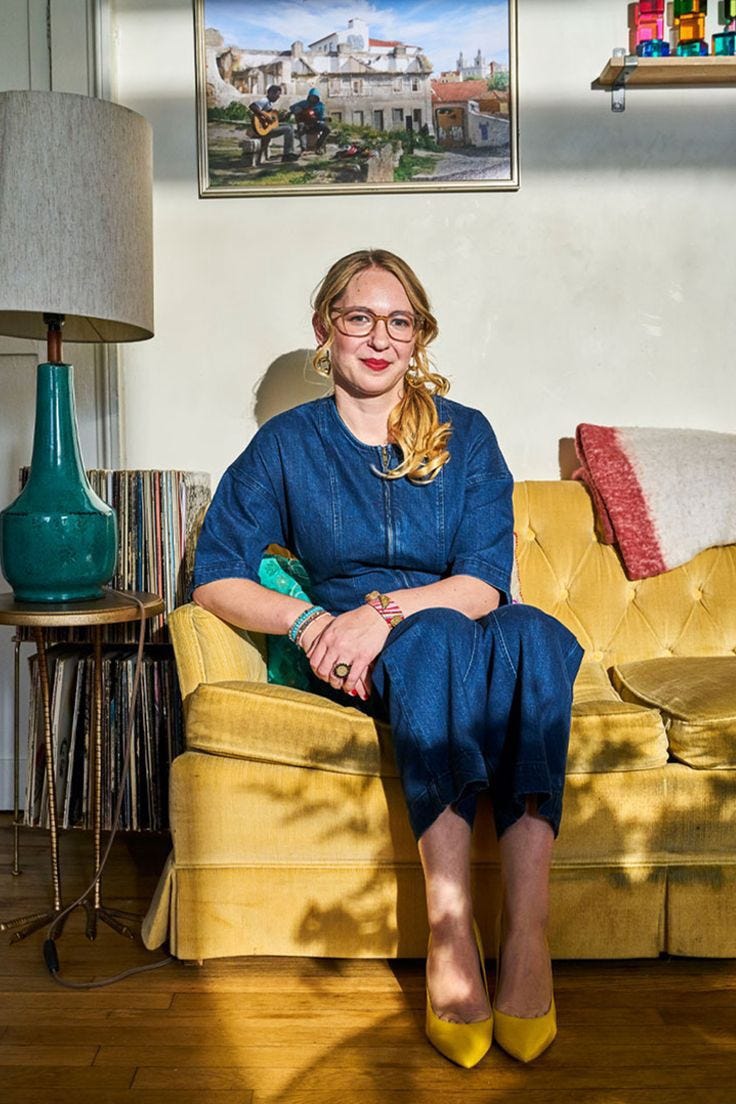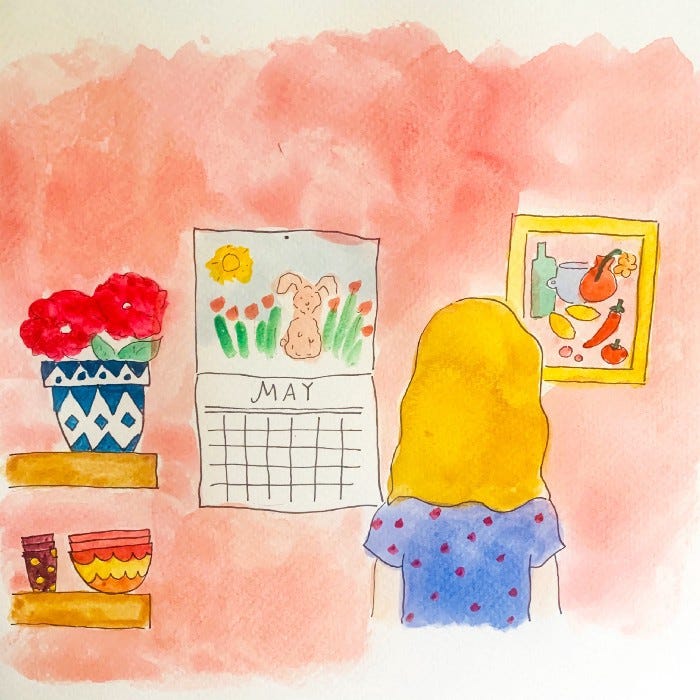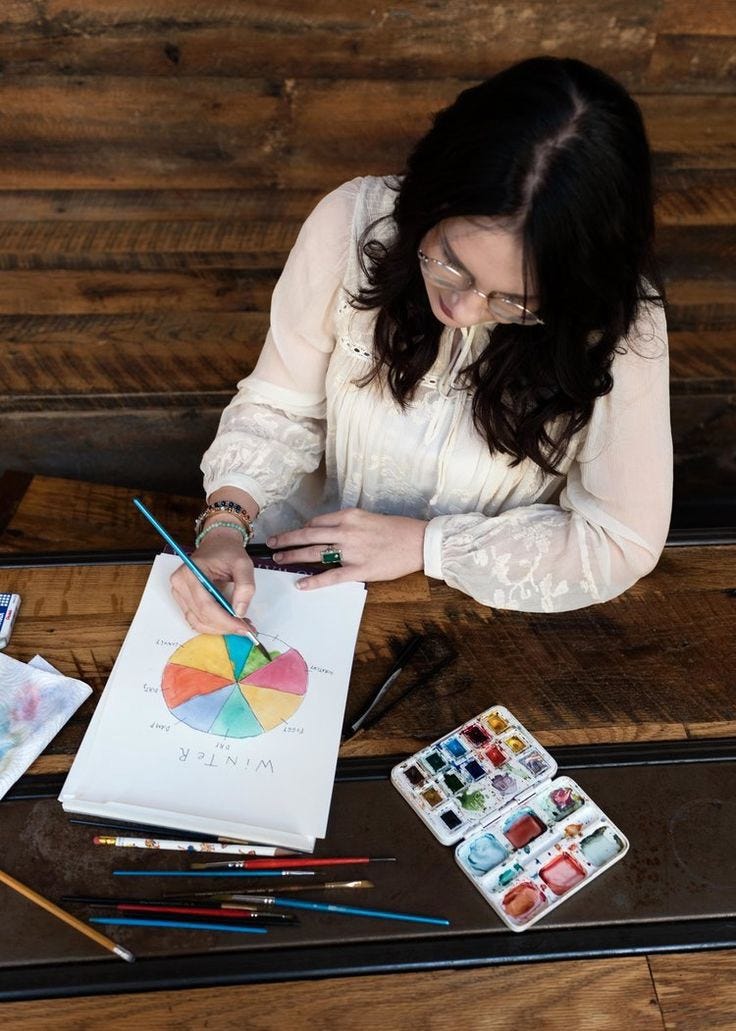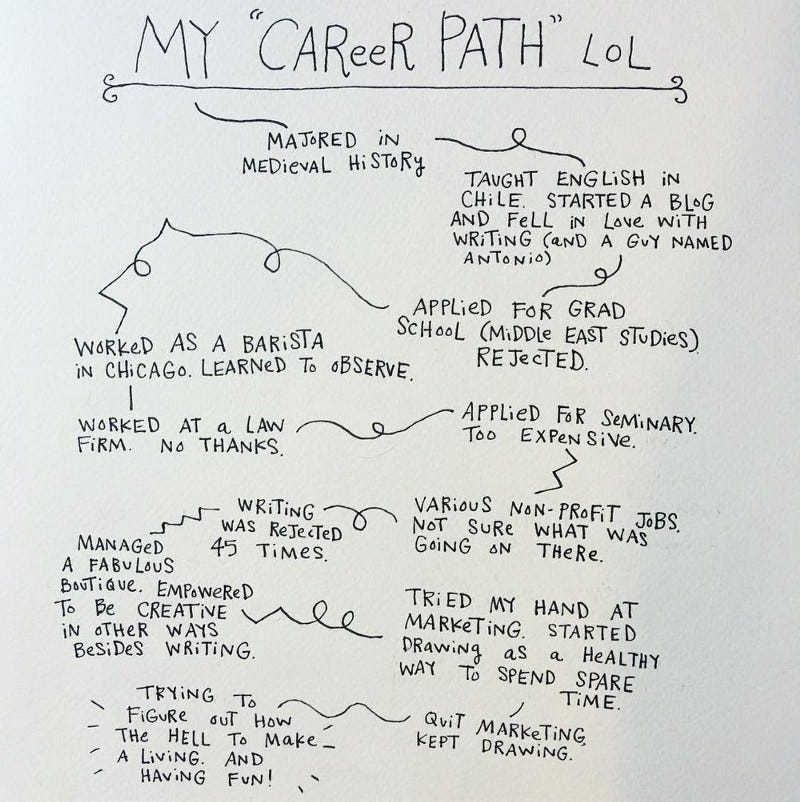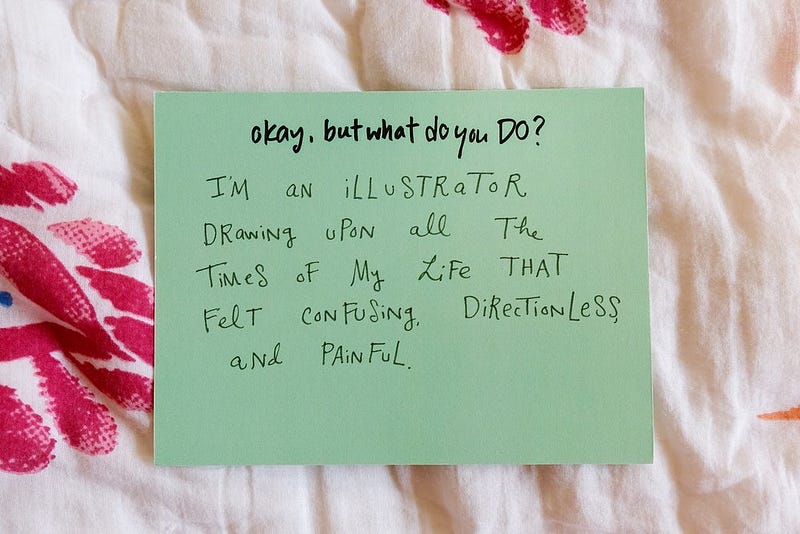My Inner Sky — On Embracing Day, Night , and All the Times : An Interview with Mari Andrew
I had an insightful Interview and Q&A Session with New York Based Writer and an Illustrator Mari Andrew about her new book My Inner Sky…
I had an insightful Interview and Q&A Session with New York Based Writer and an Illustrator Mari Andrew about her new book My Inner Sky and everything related to it’s writing process.
When I came across her Instagram page, she instantly became my role model. Every day, she publishes a relatable illustration : a routine which she has maintained with utmost dedication for more than four years. Moreover , to start this year off with a positive note, her second book “My Inner Sky : On Embracing Day, Night , and All the Times” got published on March 2nd.
About - MARI ANDREW
My name is Mari (rhymes with starry) and I'm a writer, artist, speaker, and flamenco enthusiast, living in New York. I…bymariandrew.com
Her writing/illustration career started as a mere hobby in 2015 when she was recovering from a break-up and the death of her beloved father. Previously only interested in writing, she pursued illustration as a form of self-expression.
In this insightful and warm book, she has beautifully compiled an impressive collection of personal essays and illustrations . Through her writings she has explored all the emotions that make up a life: the night and day and smudgey purpley transition times in between, in the process offering insights about trauma and healing, the meaning of home and the challenges of loneliness, finding love in the most unexpected of places — from birds nesting on a sculpture or a statue , to a ride on the subway — and a resounding case for why sometimes you have to put yourself in the path of magic.
Her writings empowers us to transform everything that’s happened to us into something meaningful, reassurance that even in our darkest times, there’s light and beauty to be found. Reading this book felt like a hug from your best friend. It is filled with essays on healing and grief and magic and gratitude and finding strength in yourself and beauty in the little things.
The book is organized into categories like Dawn, Night and Twilight. She uses the metaphor of the sky to describe the different stages in life and artistically displays these transitional times through watercolor illustrations sprinkled throughout the book.
Books - MARI ANDREW
A whole, beautiful life is only made possible by the wide spectrum of feelings that exist between joy and sorrow. I…bymariandrew.com

Excerpts from the Interview :-
Q1) You wrote your first debut book : Am I There Yet? which is a collection of observations from your 20s and navigating the murky waters of dating, heartbreak, grief, moving, finding community, and creating home in a studio apartment. The book depicted your own battle with depression. What was it like to open yourself up publicly in such a raw, personal way? You became a bestselling author and expert in mental health, creative healing and personal resilience by telling your story. Did you ever “second-guess” sharing such a personal battle?
Mari : No, I’ve never second guessed it! I’ve so appreciated artists and writers who mine their own experiences for storytelling that I know I’m in wonderful company as someone who shares a lot of her own life. What people may not realize is that I’m sharing stories that I’ve already processed over and over; they’re seeing a finished product of a lot of work and reflection. If I were to share my journal, or my Notes app, or my texts with friends, that would be a different story! But sharing from my heart in the form of a book or art is the very last step in a long journey of introspection; there’s not much of a risk in sharing a processed experience. I send it into the world just hoping that it may help someone feel a bit of companionship.
Q2) Tell our readers here about your upcoming book My Inner Sky in detail. It’s creative process .What was the moment that you decided, ‘I want to write a book about this’? What can the readers expect from this book? What is it about? What message you wanted to communicate to your readers through this book?
Mari : This is the book I’ve always wanted to write, but not one I had the life experience to write. All of the personal essays in this book come from a few core beliefs: that every moment in life is worth paying attention to, and there is beauty in boredom and loneliness as much as in joy. To write this book, I really had to pay attention: to my thoughts, to my experiences, to my pain. I felt very connected to readers as I was writing it, and wanted them to feel ownership over their own lives. Society gives us so many messages about how we should feel, what we should think, how we should mourn or celebrate. This is a book about doing all that a little differently.
Q3) What was your writing process like?
Mari : Once I knew what I was going to say, it all came out very quickly. That’s how most of my work is; it takes a while for an idea to form and take shape, but once it’s in my mind, the words come pouring out. That’s a marvelous, spiritual experience and the best feeling in the world for me.
Q4) Did you wrote the book as a cathartic exercise, or to reach out to those who might need help, or to assert and own your identity?
Mari : Writing is how I make meaning of my pain and joy, so that’s what I did here. I use writing as a bridge between my jumbled and troubled mind to the rest of the world, as an effort to reach out and try to connect my experiences to the experiences of others.
Q5) Do you have an essential philosophy that guides you in your creative expression?
Mari : Pay attention! To everything!
Q6) Is being an illustrator a very satisfying job? It seems your job adapts itself to your life rather than you adapting to the job which would be the case with many other forms of work.
Mari : Ohh, this is a great question. I would say it’s satisfying work for the exact reason you mention, but a job is different from work. Figuring out how to make money from something I naturally do requires a great deal of reflection and can be a lonely process.
Q7) For someone who hasn’t experienced any mental health problems themselves, it can be difficult to understand how it feels to be mentally ill. Could you explain to my readers what depression and anxiety feels like to you?
Mari : I can only speak to my own experience of course, but the most surprising thing about depression for me is that it felt like…nothing. We often use “depression” and “sadness” as synonyms, but the hallmark of my experience with depression is that it felt like: not wanting anything. Lack of desire. Lack of interest and curiosity. It’s sort of a numb experience where there’s nothing particularly interesting or compelling, which for someone like me (who is interested in everything!) was extremely disturbing.
Q8) How was your experience of writing the book? What was the hardest chapter for you to write?
Mari : I loved every moment of writing this book. It was the privilege of a lifetime to get to write exactly what I wanted. The hardest chapter was writing about creative block, because I was actually quite creatively-blocked while I wrote it! It ended up being a cathartic piece because I was experiencing a long lack of inspiration as I was writing about the lack of inspiration — very meta!
Q9) I’m a recovering perfectionist myself, so it wasn’t a surprise how many individuals mentioned the appearance of their homes or their children or how they look. And technology fuels the flames with carefully filtered and curated social media feeds showing the happiest, prettiest and shiniest events in all of our lives. Do you think that toxic perfectionism acts as a contributor to depression?
Mari : I’m not sure how it is for other people, but I know that social media can be a very dangerous place to be when I’m feeling particularly raw and tender and susceptible to comparison. The comparison can be so in-your-face, not something you have to actively seek out. I try very hard to keep my focus away from external validation, which can only be a temporary satisfaction, and instead rely on my community and my own experience of joy for my validation. It’s a daily, deliberate, and difficult practice!
Q10) Is writing a way out of depression?
Mari : No, I don’t think so, but I do think that writing can help us give meaning to our most difficult experiences — depression included.
Q11) Has what you’ve learned by writing this book helped to alleviate your depression? Are you, for want of a better phrase, a happier person?
Mari : I was writing this book from hindsight; I personally wouldn’t have been able to write from a depressed place because depression robs me first of my creativity before anything else. I was grateful to get to dig into some of these more painful parts of life and track my own journey into healing. Happiness is never a goal of mine, but the word “healing” comes from the word “wholeness” and I do feel more whole after having gone through some of these really difficult times. I’m lucky to have a lot of help and a beautiful community, and all that support certainly bolstered me as I wrote about these topics.
Q12) I’d love to hear about some of your mental health book recommendations!
Mari : Everything by Matt Haig!
Q13) One last question! What’s one piece of advice you would give to an aspiring illustrator, writer or artist? On a personal level, I was wondering when you reflect on your life as an illustrator have you learned any lessons about life, or obtained any particular perspective?
Mari : As cliche as it sounds, my best advice is: be yourself. You are the only person who has ever been you, which means you have a completely original perspective and gift to offer the world. If you’re inclined toward art and writing, it probably means that you’ve spent a lot of time observing, and you have some ways to teach the world to pay attention and look deeper. I’ve only been able to do the things I’ve done because I’ve stayed true to what I wanted to say and how I’ve wanted to say it, and fortunately it’s been well-received! I’ve learned to stay true to my North Star, my guiding mission and set of values, and that’s a challenging but very rewarding way to create and go through life.
Thank you all for reading and a big thanks to Mari Andrew for collaborating in today’s post!
It’s a pleasure!
Website : https://bymariandrew.com/
Instagram : https://www.instagram.com/bymariandrew/
Twitter : https://twitter.com/bymariandrew
Skillshare : https://www.skillshare.com/profile/Mari-Andrew/6071154
Last year, I had the opportunity to interview some of my favorite individuals who at one time seemed like distant internet celebrities I could never reach. I appreciate each and every reader — who took time to get to know them, learn from their experience. In case you missed them, here’s a recap:
Shakespeare & Co. Paris : An Interview with Sylvia Whitman https://medium.com/myfirst/shakespeare-company-paris-an-interview-with-sylvia-whitman-483c3d601e99
Harvard Book Store : An Interview with Jeffrey Mayersohn https://medium.com/myfirst/interview-with-jeffrey-mayersohn-co-owner-of-harvard-book-store-b031ef968cf6
City Lights Books : An Interview with Paul Yamazaki https://medium.datadriveninvestor.com/city-lights-books-an-interview-with-paul-yamazaki-principal-buyer-at-the-bookshop-bbf95c03b37a
Trilogy Bookstore & Library : An Interview with Ahalya Naidu https://medium.datadriveninvestor.com/interview-with-founders-of-trilogy-the-eternal-library-a-readers-paradise-in-bandra-mumbai-d2d4e6d12342
Interview with Bob Eckstein & Jason Chatfield https://medium.datadriveninvestor.com/interview-with-bob-eckstein-new-york-times-best-selling-author-new-yorker-cartoonist-b6732218d062 https://medium.datadriveninvestor.com/interview-with-jason-chatfield-president-national-cartoonists-society-cartoonist-for-new-bc483559b111
Paris Letters : An Interview with Janice Macleod https://medium.com/swlh/paris-letters-an-interview-with-janice-macleod-8396d04bf1e



